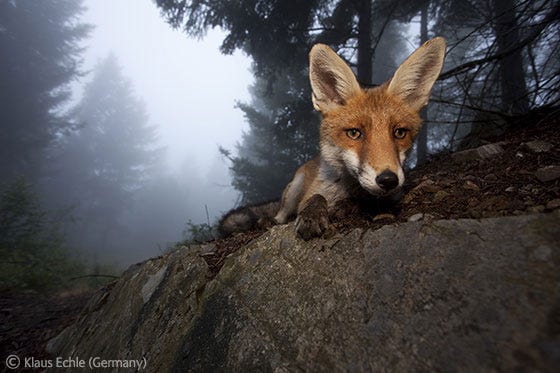Hi everyone:
In this week’s Other Earth-Shattering News, I’ve got stories about 1) Maine’s new law to charge companies to cover recycling costs, 2) the science behind the idea that all matter may have consciousness, 3) the understanding that the U.S. border crisis is actually a climate crisis, 4) the idea of cooling the planet with atmospheric aerosol particles, and 5) the Economist talking about the stark consequences of three degrees of warming.
Now on to the main event:
In recent days, we’ve had to watch some relentless reporting on billionaires doing what was done by the U.S. and USSR more than a half-century ago: briefly rocketing into low orbit. New technology, yes, but no new ideas, other than “space tourism” (though that’s more an impulse than an idea) and the deeply foolish notion that massive investment in building off-planet human colonies is right or reasonable. Despite the financial and environmental costs, I’m a fan of the astonishing remote sensing and science being done by various probes and rovers visiting planets, moons, asteroids, and the sun. But humans in lunar or Martian colonies, or zipping around the solar system on long flights? We’re weak and squishy and needy and incredibly expensive, and far more subject to failure and distraction than a rover. Just the cost of building and maintaining safe facilities will far, far outstrip the cost and value of whatever science might be done uniquely by human hand.
For some perspective on all this, let’s look at Antarctica. We’ve been there for a while now. It’s been 120 years since the first terrestrial exploration and 65 years since we began to live in year-round scientific settlements (which was only six years after Yuri Gagarin first entered orbit). But we still don’t really inhabit the ice. Ships and planes full of cargo and personnel come and go on a regular basis, but they sustain small-scale operations filled with transient populations. You could fit the entire peak Antarctic population (around five thousand people) into a large cruise ship. A stint on the ice lasts anywhere from a few weeks to two years, and very few humans have spent more than a decade of their lives on the continent. According to a 2012 report, logistics and operation costs in the United States Antarctic Program 80% of the total budget. Likewise, four out of five Antarcticans are staff, not scientists.
Neither profitable (aside from invaluable reams of data) nor self-sustaining, Antarctic bases are outposts of the warm world, and have long been thought of as analogues for the kinds of communities we might one day establish on the moon or Mars or in ships on long space voyages. Antarctica, particularly its high, lifeless interior, is an environment so hostile that we have to import everything except air and water in order to survive. I can tell you from personal experience that standing at the South Pole, or amid the vast and featureless snows of East Antarctica, feels very much (to the imagination) like occupying another planet. In part, this is because living conditions (deep cold, no available liquid water) on the East Antarctic ice cap resemble those on Mars more than those in your neighborhood, and in part this is because our sense of time and space is altered by the extraordinary absence that surrounds us.
But the exploration of Antarctica has other parallels to our apparent hunger to leave the planet and settle other orbiting bodies. I’m thinking particularly of the once-mythologized European voyages to conquer “virgin territory” and monetize it for king and country. Oddly enough, Antarctica is the only significant land on Earth that met the virgin criteria, since it had no human history until the arrival of white hunters and explorers in the 19th century. Everyplace else (the Arctic and the Americas, Australia, the islands of the South Pacific) had been settled by much hardier peoples thousands of years earlier. The weird, misogynistic notion of virginity has persisted as an Antarctic theme through recent decades, not least in a 2011 headline in The Independent – “Earth’s Last Great Virgin Habitat Invaded” – about scientists sampling unseen lakes under the ice caps.
The American polar adventurer Will Steger wrote in his 1991 book, Crossing Antarctica, that his companion Jean-Louis Etienne “likes to call Antarctica ‘the world’s fiancée,’ because everyone wants to get to know her, everyone wants to protect her, everyone wants her to remain a virgin.” Patriarchal and patronizing language aside, Jean-Louis might have been a bit of an optimist, since there are plenty of nations and corporations still biding their time until the day that geopolitical maneuvering finally allows the exploitation of Antarctica’s resources, but he speaks to the modern tension between protection and misuse of civilization’s edges. That is, he speaks to the question of whether we can restrain our Anthropocene habits wherever we establish our outposts.
Given that we’re still using the word “virgin” to describe undisturbed places we want to disturb, that seems unlikely.
Antarctica is protected by a treaty, the moon and space are protected by treaties, but these are all either nonbinding or subject to the whim of any powerful state which decides it no longer cares to honor the treaty. The U.S., for example, passed a law in 2015 allowing American companies and citizens to mine asteroids and the moon, even though it may violate the egalitarian tenets of the 1967 Outer Space Treaty. Which leaves me with a confidence that the same hypercapitalist, patriarchal, colonial mentality that has brought us to the brink of a collapse in biodiversity and a rapidly heating atmosphere would follow us out of orbit. Watching the current “space race” reminds me a bit of the oft-told (but probably apocryphal) story about medieval feudal lords claiming jus primae noctis (the right of the first night) to bed a bride on her wedding night.
“Space is Virgin territory,” tweeted Richard Branson after his mini-voyage, though to be fair he was mostly punning on his company name. Still, as I watch self-satisfied, grinning billionaires Musk and Bezos and Branson talk about conquering space travel I am reminded of the disturbingly happy middle-aged American men I once saw on the streets of Bangkok walking arm-in-arm with young Thai sex workers. (To be clear, this is just an analogy. Don’t sue me, billionaires.) Their interest is in space tourism rather than sex tourism, but it still seems to me like an ugly, self-centered, colonial monetization of what is not theirs. (Not that this is restricted to absurd wealth. Just a little will do. I once saw two Antarctic coworkers shopping online for young Thai women to spend time with once they finished their contract.)
So much of what has accelerated the Anthropocene is rooted in the myth of the individual and the pervasive empowerment of absurdly wealthy men and corporations. Jeff Bezos’s post-voyage shallow, awkward, and oblivious Thank You (“You guys paid for all this”) to his often overworked and dehumanized employees is less an acknowledgment of social interdependency than a sign of gross inequity. We live in the inevitable conclusion of an economy which doesn’t have guardrails designed to protect life on Earth and the future generations who rely on it.
In the “Let’s go to space!” fantasy, there are several delusions stacked up on one another, like Amazon boxes on a doorstep. First, the true cost of sustaining a few humans off the planet is far, far greater than the billions in spare change being spent by these guys. The resources squandered and the CO2 produced are a price which will largely be paid by poorer people and other species. Second, other than some fascinating science, these efforts are not for the benefit of humanity, despite Elon Musk’s worry that we’re not on the path to become a multiplanet species: “If we’re not, well, that’s not a very bright future. We’ll simply be hanging out on Earth until some eventual calamity claims us.” That calamity, or set of calamities, that await us over the next few generations (if we don’t turn things around) are huge and heartbreaking, and I’m astonished that someone could use that awareness to accelerate an impulse to put a few people into some kind of completely dependent colonial tent camp on Mars, rather than wondering what the hell we’ve done and what the hell we’re doing putting so much blood and treasure into off-planet adventures. I’m reminded of comments in the recent excellent documentary Summer of Soul by attendees at the 1969 Harlem Culture Festival about the simultaneous arrival of men on the moon. They noted the technical achievement, but were unimpressed by the ethics of it.
Third, the Anthropocene and the new “space race” are figments of the same imagination, one which pretends there isn’t an essential, existential interdependency between humans – as in, we need to support each other for survival rather than climbing atop one another to reach for the stars – and pretends we aren’t entirely dependent on a healthy planet for our existence. Fourth, an underlying assumption in promoting a lunar base or (especially) a Mars colony is that such civilizational outreach is somehow more meaningful than improving life at home. Or that such outreach will be inspirational to the afflicted in some helpful way, like a guy trying to mend his abusive marriage by working on the family car.
Finally, it’s a delusion to think that we will easily inhabit the moon or Mars in a timeframe that won’t be completely undermined by the hard impacts of the Anthropocene. Imagine being inspired or awed at the tens of billions of dollars being spent for an outpost on Mars as we experience a cascade failure of ocean food webs as acidification and warming intensify, as agriculture deals with fewer pollinators and bizarre weather, and as governments struggle to cope with natural disasters, water shortages, and climate refugees. If we were somehow able to make things less bleak here on Earth at the same time we’re sending people off to far bleaker places, that would be fine, but so far such optimism seems unwarranted.
We haven’t inhabited Antarctica after more than a century, and that’s our closest analogue for the moon or Mars or anywhere else off the planet. And to be honest, it’s not much of an analogue. You don’t, for example, immediately die if you step out a building or tent on the ice. You don’t float away, you aren’t bombarded with intense radiation, and you aren’t separated from home by a months-long flight in zero gravity. In Antarctica, you can breathe, melt the snow, call home, and take a walk.
As long as I’m digging into the analogue, it’s worth asking whether decades of investment in Antarctica is as unethical as a Mars colony, given the longstanding needs of the warm world. I’m biased, having fallen in love with the place, but on the whole I think it’s been worth it. Certainly much money and resources are wasted every year – I’ve seen it in person – but frontier living in an extreme climate at the far end of a logistics chain is always inefficient. And the Antarctic expense pales in comparison to that of off-planet adventures, even if they’re undertaken (as they should be) by rovers and probes. Mostly, though, investment in Antarctica is an investment in understanding the Earth, since (dreams of otherworldliness aside) it is a truly essential part of our planetary home. Life on Mars is a fantasy in the midst of the Anthropocene. Antarctica, in contrast, with its trove of climate science, offers information vital to understanding and improving the crisis.
Imagine if these billionaires took on the real challenge of our time rather than adopting glitzy fantasy projects. What if Bezos protected the Amazon, and if Branson devoted himself to funding family planning around the globe, and if Musk focused on solarizing the world’s electrical grids? They’d accomplish far more for humanity and for their legacies than these flashy boondoggles ever will.
On the subject of motivation, National Geographic ran an article last February asking why we’re so “obsessed” with finding life on Mars. I’m not sure that’s a real characteristic of humanity, but in the magazine’s worldview it makes some sense. The article closed with one of the most frustrating ideas I’ve heard in years. Andy Weir, author of The Martian, answered the article’s question this way: “We are not a solitary people… At a macroscopic level, we – humanity – we don’t want to be alone.” Maybe Weir’s comment was taken out of context, but I’m sure there are plenty of people who would find the assessment valid. We want to search the solar system and beyond for life to study and commune with, blah blah blah. And that stuns me. To believe that we are alone is to forget what it means to be human. The primary characteristic of Earth amid all we know of space is our lack of aloneness. We are part of an astonishing community of life, from foxes to tree ferns to skuas to viruses. The Anthropocene, looked at through the lens of our increasing disconnection from life on Earth, appears as an epidemic of loneliness. No wonder Mars is attractive for some of us who only see the human world squatting atop and hiding from view what we call the natural world.
Professor Lisa Messeri is an anthropologist of science and technology who wrote a fascinating Op-Ed for the New York Times about how astronomers imagined the Earth-like planets they are so actively searching for in our galaxy. “When I spoke with astronomers about methods for detecting Earth’s twin,” she writes, “I was struck that what they were searching for was Earth at its most pristine… It propagates an imagination of Earth as an ideal, edenic home. This is a planetary home simpler than the one we grapple with on a daily basis; a home that we might fantasize was the planet of our youth.” A younger, virginal Earth is an Earth we haven’t screwed up, as Earth without modern humans, an Earth we might treat better this time... Perhaps, in this fantasy’s logic, rather than extending the Anthropocene to Earth 2.0, we would treat it as the galaxy’s fiancée.
This is all best summed up by a line from Elizabeth Kolbert in an excellent 2015 New Yorker article on all the fuss about Mars. Regarding what might happen when we leave Earth and set up shop somewhere else, she says simply, “Wherever we go, we’ll take ourselves with us.” The question is which version of ourselves we’ll take. All signs so far indicate that the desire to leave is tied directly to the refusal to stay and do the hard work.
My usual glib comment on Mars colonization is “Either we all leave, or no one leaves.”
I’ll close by quoting Kolbert’s final paragraph. The final lines are marvelous, both for their intelligence and for their rich insight:
One of these days, we may well do ourselves in; certainly we’re already killing off a whole lot of other species. But the problem with thinking of Mars as a fallback planet (besides the lack of oxygen and air pressure and food and liquid water) is that it overlooks the obvious. Wherever we go, we’ll take ourselves with us. Either we’re capable of dealing with the challenges posed by our own intelligence or we’re not. Perhaps the reason we haven’t met any alien beings is that those which survive aren’t the type to go zipping around the galaxy. Maybe they’ve stayed quietly at home, tending their own gardens.
Links:
U.S. Antarctic Program Blue Ribbon Panel Final Report: https://www.nsf.gov/geo/opp/usap_special_review/usap_brp/rpt/index.jsp
Crossing Antarctica by Will Steger: https://www.amazon.com/Crossing-Antarctica-Will-Steger/dp/0897328965
Outer Space Treaty: https://www.unoosa.org/oosa/en/ourwork/spacelaw/treaties/introouterspacetreaty.html
Video of Jeff Bezos expressing his gratitude:
Context for Elon Musk comment about becoming a multiplanet species: https://www.space.com/12519-spacex-mars-colony-dragon-falcon-heavy.html
Summer of Soul documentary: https://www.npr.org/2021/07/01/1010306918/summer-of-soul-questlove-movie-review-harlem-cultural-festival
National Geographic article on our obsession with Mars: https://www.nationalgeographic.com/magazine/article/why-are-people-so-dang-obsessed-with-mars-feature
Lisa Messeri’s Op-Ed for the Times: https://www.nytimes.com/2016/08/25/opinion/whats-so-special-about-another-earth.html
Elizabeth Kolbert’s New Yorker article: https://www.newyorker.com/magazine/2015/06/01/project-exodus-critic-at-large-kolbert
In Other Earth-Shattering News:
Maine is changing the legal landscape for recycling, by making companies rather than taxpayers pay for it: https://www.nytimes.com/2021/07/21/climate/maine-recycling-law-EPR.html
Maybe everything has consciousness? If so, we should probably reconsider how we relate to everything that isn’t us: https://www.salon.com/2021/07/23/panpsychism-the-idea-that-inanimate-objects-have-consciousness-gains-steam-in-science-communities/
The border crisis is actually a climate crisis: https://www.politico.com/news/magazine/2021/07/19/guatemala-immigration-climate-change-499281
Can we cool the planet with stratospheric aerosol injection? https://www.space.com/can-we-stop-earth-from-heating-up
The Economist on the consequences of three degrees of warming: https://www.economist.com/briefing/2021/07/24/three-degrees-of-global-warming-is-quite-plausible-and-truly-disastrous








Well said! Thanks.
Great column, Jason.